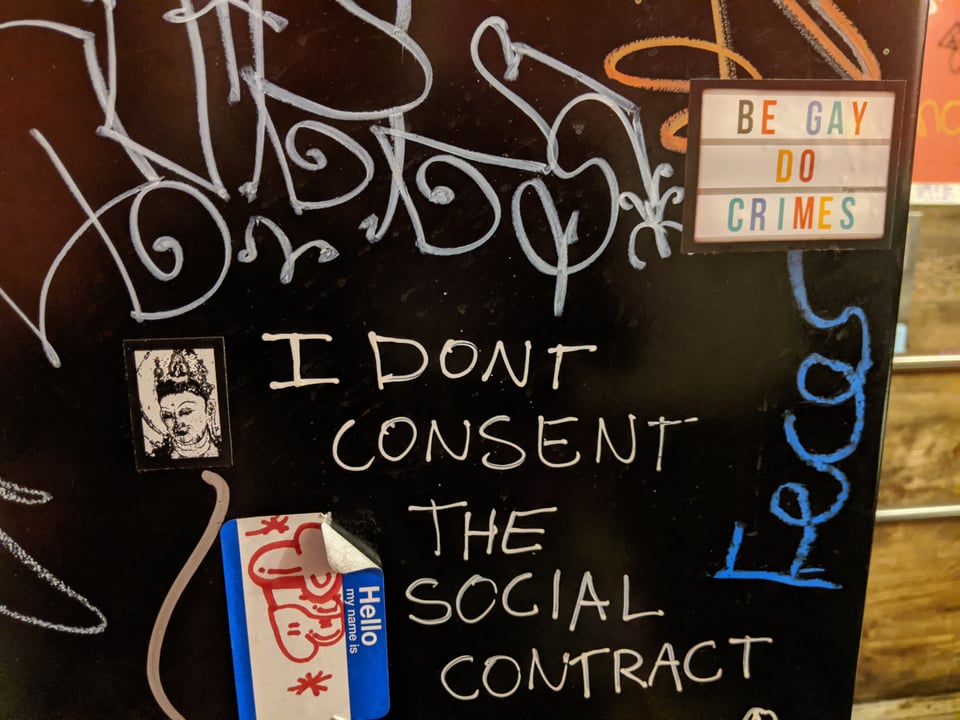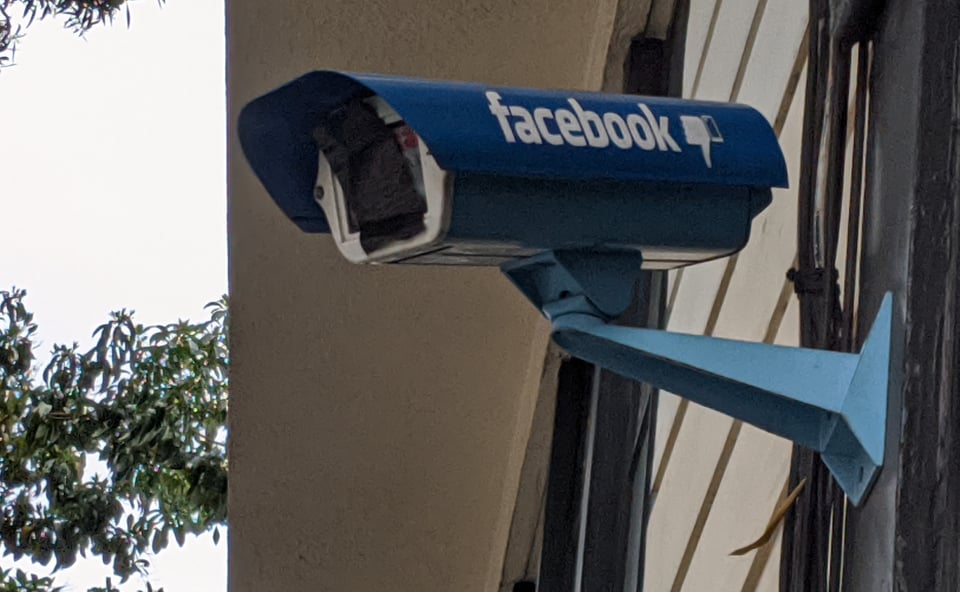How To Build Your Online "Brand" Without Burning Out

Recently, there's been a lot of talk about people, especially writers and other creative people, needing to have a "personal brand" on social media.
This latest conversation mostly comes out of this somewhat dispiriting article in Vox by Rebecca Jennings in which she writes:
Corporate consolidation and streaming services have depleted artists’ traditional sources of revenue and decimated cultural industries. While Big Tech sites like Spotify claim they’re “democratizing” culture, they instead demand artists engage in double the labor to make a fraction of what they would have made under the old model. That labor amounts to constant self-promotion in the form of cheap trend-following, ever-changing posting strategies, and the nagging feeling that what you are really doing with your time is marketing, not art. Under the tyranny of algorithmic media distribution, artists, authors — anyone whose work concerns itself with what it means to be human — now have to be entrepreneurs, too.
There's a great discussion of this in a recent episode of the podcast Vibe Check.
I've always hated the idea of turning a human being into a brand, for much the same reasons that I hate the concept of careers: it's gross, people aren't commodities, we all need to be free to contain multitudes and to occasionally flake out. I'm not my creative work, and my creative work is not me. Plus creating a personal "brand" inevitably turns into questions of "authenticity" which are fraught as hell for a lot of marginalized people — and being "authentic" online can easily mean presenting a version of your marginalizations that "mainstream" (read: privileged) audiences will find interesting and entertaining.
Still, the discussion about having an author brand is nothing new — I've been hearing it since at least the late '90s, which is when Jennings traces it to. But what's new is a greater sense of precarity among creators, due to rising rents and shrinking marketing budgets among publishers and other media companies. Plus an attention economy that's dominated by social media platforms like TikTok and YouTube.
These days, authors are pretty much required to have a capital-P Platform. And as Jennings writes, this can easily mean twisting yourself into whatever shape the big social media companies are looking for this week. What's my solution to the pressing issue of building a "Platform" online? You're looking at it. This newsletter is my attempt at building something sustainable that can speak for me, and hopefully reach people who care about the same things I care about.
As I wrote before, I'm kind of over social media as a place to promote yourself, because of the thing I talked about before where socializing and self-promotion get blurred together in an ultra-public forum where everything is endlessly scrutinized by random strangers. (Not gonna repeat everything I said in that earlier piece, which I still stand by.)

I suspect that our ideas of what is possible on social media got heavily skewed by a few outliers who were good at both creative pursuits and also being an influencer. For most of us, I feel like there's a law of diminishing returns: the more followers you have, the smaller the percentage of those followers will actually support your work instead of just enjoying the free entertainment of your online antics.
So here are some possibly helpful tips for having a personal brand, without burning out:
1) Keep surprising people
The essence of a brand is predictability and consistency — but we love people who surprise us. Don't let the brand thing force you to get stuck in a rut. You should contain fucking multitudes!
2) Protect your personal privacy
I used to share a lot more about my personal life, and I'm lucky that was back in the Livejournal era when privacy filters were much more robust. The aforementioned "authenticity" on social media may seem to require sharing a lot of private stuff, but I believe this leads to burnout faster. You end up with less space in your life that's just for you, and not for the public. And the act of making every part of my private life pretty enough for social media makes me tired.
3) Know when to shut the fuck up
Social media puts pressure on all of us to be constantly talking — and to weigh in on every last controversy, even if you don't really have a solid opinion or don't fully understand the situation. Worst case scenario: You end up making things about yourself that really have nothing to do with you. So one of my favorite things to do on social media is to shut the fuck up.
4) Don't be toxic
Okay, this should be a gimme. But toxic behavior is actually a highly successful strategy for growing your following — in the sort term, at least. Starting pointless fights, trying to sic your followers on people you're mad at for some reason, posting disingenuous hot takes — it'll hurt your brain and make people annoyed at you. Plus, when you actually do need help or really are being unfairly attacked, you'll have cried wolf too many times.
5) Don't try to go "viral"
Instead of trying to do whatever the algorithm wants you to do, focus on doing stuff that actually makes your community happy — even if you go less "viral," people might appreciate you more and be more likely to support you in the future. Oftentimes, "going viral" means amusing people who will never give a shit about you.
6) Prioritize self expression and self care
This is sort of an extension of my advice to shut the fuck up — I stop shutting the fuck up when I have something I really want to say, or a joke that I'm just dying to unload on people. This is why I love Tumblr: it's a great place to goof off and make friends, but it's not particularly built for clout-chasing. And really, it's okay to log off for a week sometimes when you need to recharge.
7 Build community instead of cultivating an audience
They talked about this a lot in that episode of Vibe Check, and I found it really useful and in line with my own thinking. Building an audience is fundamentally about finding a megaphone to reach a lot of people — building a community is more reciprocal and probably more enduring. On social media platforms, I always try to follow people back as long as they seem genuine (i.e., not bots) and cool. I have around 50,000 followers across all social media platforms, so I can't necessarily know every detail of all those people's lives, but I try to have conversations with them and be interested in them, rather than simply wanting them to be interested in me. I also try to create community in real life, by organizing stuff like the Trans Nerd Meet Up.
Bottom line: The goal is self expression, not self promotion. That's why you became an artist or writer in the first place, and that's what your social media should be about. Also, I don't think social media is the answer to deep structural problems in the media industry (many of which were caused by Facebook and Google).
Stuff I Love Right Now
I've always enjoyed Letterkenny, the sitcom about a rural Canadian community. But the final season really is utterly delightful, and feels totally fresh. There's a really strong overarching storyline as well as some completely goofy bits, and they really stick the landing. Pitter patter, etc.
Music I Need Right Now
Lately I've found that I have enough subscribers to this newsletter that if I mention I'm trying to get a piece of music, someone usually has it or can get it. So... I've been listening to a ton of jazz-funk musician George Duke lately, and enjoying both his solo material and his collaborations with Billy Cobham and other greats. He really does a great job of channeling a Parliament-Funkadelic vibe at times, but he also can go very deep into heavy soul, as in the song "No Rhyme, No Reason." (That song really got me back into his music.) All of which is to say... there's a compilation of his stuff that is only available for purchase electronically in the U.K. Like, you need a British credit card and address and stuff. It's only £17.99, or about $22. If someone could get it for me, I'd reimburse you via Venmo. Yes, I am abusing my power. No, I'm not ashamed.
My Stuff
Tonight I'm going to be reading at Happy Endings, a reading series at the Make Out Room in the Mission.
The latest episode of Our Opinions Are Correct is about infrastructure-based heroes (like Mario and Luigi, or Harry Tuttle), plus what it's like to study tardigrades in the Antarctic.
My next book review column in the Washington Post should be out any day now.
We're doing a special bonus Trans Nerd Meet Up on Feb. 25 at the Game Parlour on Irving St. in San Francisco.
You can buy two trade paperback collections featuring Escapade, the trans superhero I co-created: New Mutants Vol. 4 and New Mutants: Lethal Legion. If you want the very first appearance of Escapade, you need to find a copy of the 2022 pride issue, which is on Marvel Unlimited but otherwise (sob) out of print.
You can pre-order the paperback of Promises Stronger Than Darkness, the third book of my Unstoppable trilogy.